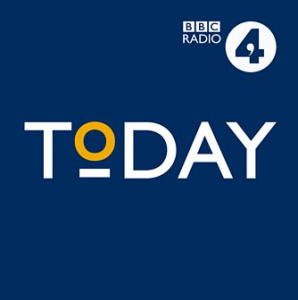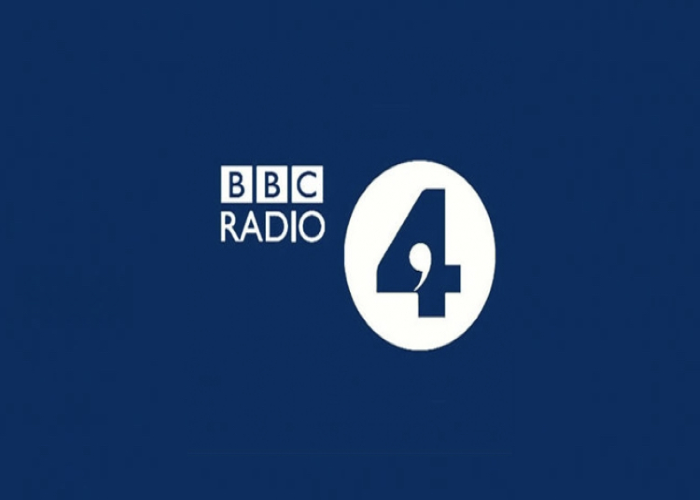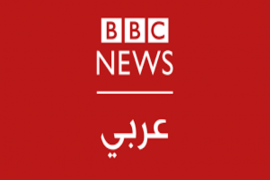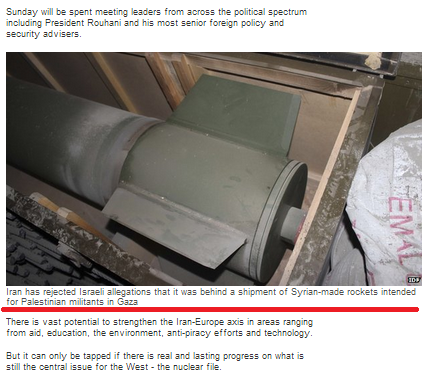Since mid-May the BBC has devoted much energy, air-time and column space to the preemptive framing of the theoretical application of Israeli civilian law to specific parts of Area C. As we have previously documented (see ‘related articles’ below) that framing has been remarkably uniform in its use of partial terminology such as ‘annexation’ and ‘West Bank’, its airbrushing of Palestinian rejection of peace proposals and its failure to present the relevant history which would enable audiences to understand the story properly.
That editorial policy was again evident in another ‘road-trip’ report from a BBC Jerusalem bureau correspondent – this time Yolande Knell – which was aired on BBC Radio 4’s ‘Today’ programme on June 30th.
Presenter Martha Kearney introduced the item (from 13:02 here) with a notion often seen in BBC content: the absurd suggestion that the conflict between Israel and the Palestinians is the only issue relevant to “peace in the Middle East”.
[emphasis in italics in the original, emphasis in bold added]
Kearney: “The long-time formula for peace in the Middle East is based on the idea of creating an independent Palestinian state alongside Israel. It’s known as the two-state solution. So what’s going to happen if, as he’s promised, Israel’s prime minister begins to annex large parts of the occupied West Bank this week? The move is endorsed by President Trump’s peace plan but rejected by Palestinians and much of the international community which sees it as a clear violation of international law. Here’s our Middle East correspondent Yolande Knell.”
At no point has Israel’s prime minister “promised” to do such a thing “this week”. Rather, under the terms of the coalition agreement, July 1st was set as the earliest date for the potential commencement of the legislative process which would result in the application of Israeli civil law to parts of Area C.
Yolande Knell’s road trip began with a reference to an archaeological site in Area C which is run by the Israel Nature and Parks Authority. Despite the fact that under the terms of the Oslo Accords signed by the PLO in the 1990s, the final status of places in Area C is subject to negotiations, Knell has apparently already decided the status of that the location.
Knell: “From Jerusalem I’m driving towards a distinctive truncated hill – Herodium – an ancient fortress in the West Bank. According to the long-standing vision for peace, this area would belong to a future Palestinian state. But is that just as illusion? The main road signs here aren’t for the Palestinian villages but for Israeli settlements dotted between them like Tekoa.”
Listeners then heard a man saying that the site was where “Herod died 2,000 years ago”.
Knell: “Claims to the land go back a long way for Marc Zell of Republicans Overseas Israel who I meet at his home in Tekoa. He approves of the Trump plan allocating a third of the West Bank to Israel but proposing only a limited Palestinian State under strict conditions.”
BBC audiences heard that same talking point concerning “strict conditions” in a different report published on the same day. Like her colleague, Knell made no effort to inform listeners that the so-called “strict conditions” rather obviously include demilitarisation of the Gaza Strip and the disarming of the terror organisation currently ruling it as part of a plan for peace. Neither did she mention the proposed land swaps intended to “provide the State of Palestine with land reasonably comparable in size to the territory of pre-1967 West Bank and Gaza” or the fact that the Palestinian leadership rejected the US proposal without even seeing it.
Those omissions mean that her interviewee’s response would be incomprehensible to the majority of listeners.
Zell: “If those conditions were met I mean that would basically be judgement day and the coming of the messiah. Is that reasonable to expect to happen in our lifetime? I don’t think so. But I think we have to achieve a modus vivendi; a way of living together.”
Having supposedly ticked the ‘impartiality’ box, Knell proceeded with promotion of the view that Palestinians support the ‘two-state solution’, even though polls show that 88% reject the US Administration’s latest proposal to bring about such a solution to the conflict, half reject the concept of two states and over half support “armed struggle”.
Knell “As she makes coffee in her kitchen Alia Sha’a [phonetic] from the nearby Palestinian village called Tuqu has the same view of Herodium but a very different point of view. ‘Of course I believe in the two-state solution’ she says. ‘We’d like to live a normal life like any other people on the planet’. At the same time she knows that’s a distant hope. Locals have lost land to the nearby settlements, there are often tense confrontations with Israeli soldiers and settlers. Her main fear is the ripping up of past peace deals could create chaos. ‘It fires the last bullet at chances for a Palestinian state’, Alia says. ‘I think there’s a great danger that the Palestinian Authority will collapse and that will affect us all’.”
There have of course been no “past peace deals”. The process towards such a deal that began with the Oslo Accords was cut short by the decision of the Palestinian leadership to instigate the terror war known as the Second Intifada.
Listeners then heard shouting in English: “1,2,3,4 occupation no more”. Knell described an undated “protest against annexation in the Jordan Valley” attended by “dozens of Palestinians and Left-wing Israeli activists” but failed to inform listeners that such protests have been organised by the Palestinian Authority. Listeners heard from “a young waitress from Tel Aviv” who described herself as “a peace person” and who is a ‘one-stater’.
Shahar: “For me personally I would like it to be one country for all of us together. I believe in coexistence. I would like to live with my neighbours.”
Knell: “And that could include neighbours across the wide expanse of desert in Jordan, where the king’s warned that annexation moves by Israel could cause massive conflict. Kochav shares her dream of better regional relations with many other Israelis.”
Shahar: “I believe we can have peace in the whole Middle East and would like to visit all of my neighbour countries you know be a tourist like all the people in the Europe Union for example.”
Knell then brought in the Canadian-born, currently Ramallah-based former PLO employee Diana Buttu.
Knell: “Driving around to do this report I’m struck by the amount of roadworks. It’s becoming much easier to go between the settlements and different parts of Israel. Both the actual and political landscape has changed dramatically since there was a real peace process. Diana Buttu, who used to work on the Palestinian negotiations team, says now is the time to acknowledge new realities.”
Buttu: “We now have for the first time the Israelis officially saying they don’t believe in two states. For a long time we’ve seen that the Palestinian Authority bought into the idea that there is going to be a Palestinian state, Palestinian freedom, and now they have to reckon with the fact that that’s just not going to happen and instead start devising a new strategy.”
Buttu of course has a long record of promotion of politically motivated falsehoods in media interviews but Knell made no effort whatsoever to challenge her false claim concerning what Israel is “officially” saying.
She went on to close her report without clarifying that the Palestinians agreed to the Oslo Accords which put Area C under Israeli control and with no mention of the obviously relevant fact that the Palestinians refused to engage with the latest US peace proposal before it was even published.
Knell: “Israel is already in full control of most of the West Bank. The changes being talked about mostly have symbolic value but symbols do matter and for Palestinians and much of the international community, annexation shows the road map is being drawn without them.”
The BBC’s extensive reporting on this topic continues to demonstrate the corporation’s self-conscription to the promotion of a specific political narrative at the expense of its public purpose obligations to its funding public.
Related Articles:
BBC NEWS AND BBC RADIO 4 MISLEAD AUDIENCES WITH JULY 1 ‘ANNEXATION’ CLAIM
THE BBC CONTINUES TO FRAME AN EVENT WHICH HAS YET TO HAPPEN
THE BBC’S ONE-SIDED ‘ANNEXATION’ BINGE CONTINUES
BBC NEWS MISREPRESENTS ‘PREVIOUS US POSITIONS’
REVIEWING THE BBC’S ‘ANNEXATION’ BACKGROUNDER – PART ONE
REVIEWING THE BBC’S ‘ANNEXATION’ BACKGROUNDER – PART TWO
BBC NEWS AGAIN AMPLIFIES OPPOSITION TO APPLICATION OF ISRAELI CIVIL LAW
BATEMAN’S ‘ANNEXATION’ ROAD TRIP REVEALS NOTHING NEW TO BBC AUDIENCES
ANOTHER HISTORY-FREE ‘ANNEXATION BACKGROUNDER’ FROM BBC NEWS






Typical of the BBC, it’s simple to look into the history of the Middle East, and you’ll see that from day one the Trans-Jordanian arabs are the ones who’ve been repeatedly putting obstacles in the way of peace, and Israel have always been the ones willing & making overtures for peace.
This misinformation & fake news is typical of the none-partial BBC, who target naive listeners, who believe the BBC is God’s given word.